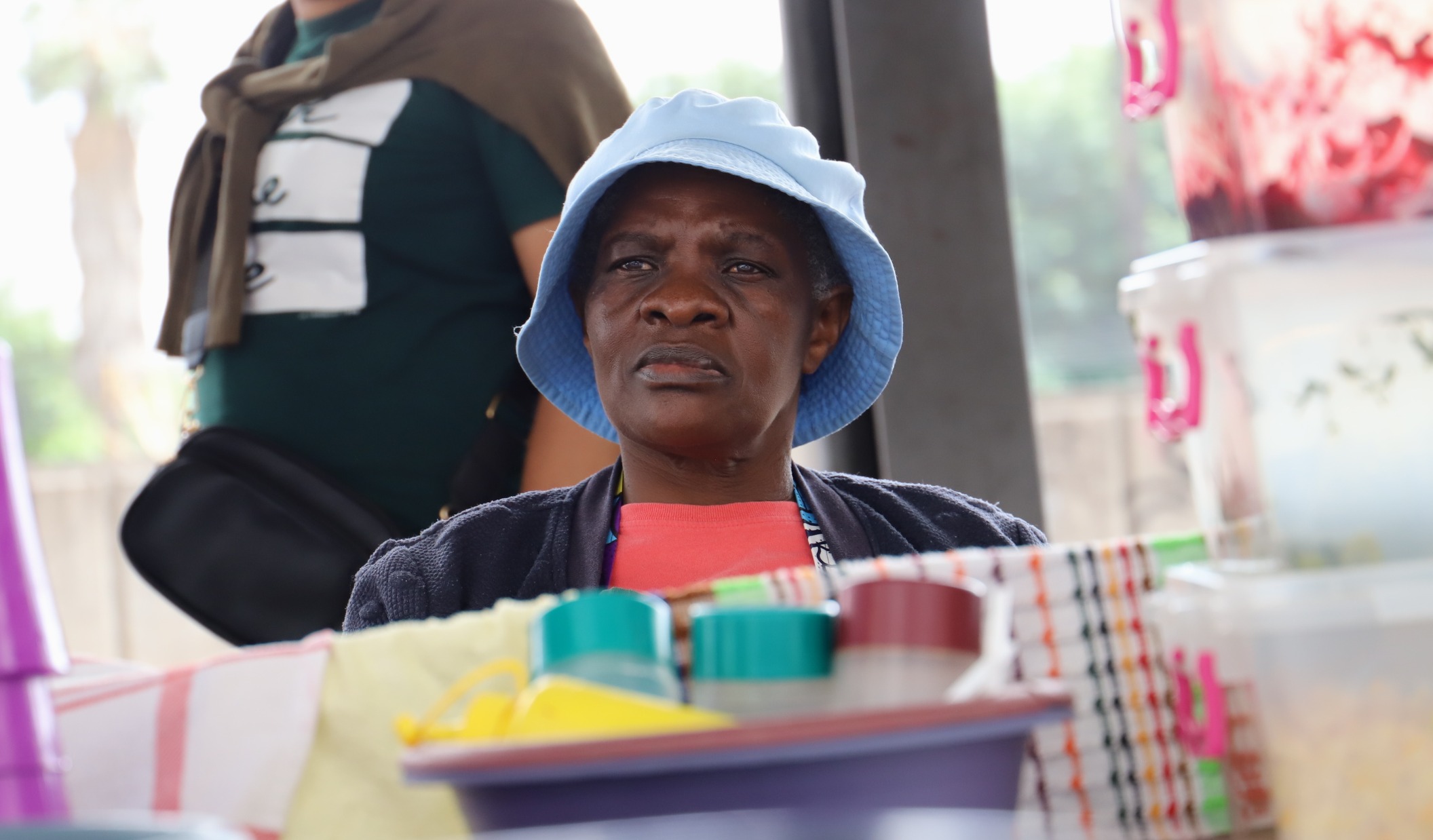At the corner of De Villiers and King George Streets in Johannesburg’s CBD, the scent of mogodu and pap wafts through the morning air long before the city stirs. Behind the steaming pots stands Mericca Kheswa (58), who has been feeding the city for 33 years – and feeding her family’s future in the process.
“I’ve only ever sold food,” she says, her voice steady with pride. “From the beginning, it was food and nothing else.”
When she started in the early ’90s, a full plate cost just R5. You can order pap, mogodu (tripe), chicken, beef or salad.
“If you had R5 back then, you had money,” she recalls. “It carried weight.”
That humble plate became her passport out of poverty. Back then, Kheswa lived in a shack so small it didn’t even have a window. “I couldn’t afford one,” she says. “No bed either – I slept on the floor.”
/file/attachments/2985/IMG_1307_803412_371c1f7e227531a6af2091d2a8be0756.jpg)
It wasn’t long before her food drew a loyal crowd.
“I realised I was making real money. I bought a bed. Then I fetched my children from the village where they were staying with their grandmother.”
When she raised her prices to R7, she felt like a mogul. “At R7 a plate, I felt like a boss – a millionaire! I could save.”
Now she charges R40 a plate, although Daily Maverick saw her drop the price to R25 for one hungry traveller, as that was all he could afford.
But Kheswa didn’t stop at survival. She joined a stokvel with fellow women traders, who pool their earnings and share the dividends at each year’s end.
“We give the money to one person for safekeeping. At the end of the year, we divide it. It’s our way of building something together.”
Her greatest investment, though, has been in her children. Nosipho and Nozuko, both nurses, owe their careers to their mother’s relentless work ethic and investment in their education.
“Nosipho finished school quickly and went straight into nursing college. Nozuko followed. I did everything I could to make sure they succeeded,” she says.
Both siblings are now practising nurses. The youngest sibling, Linda, is now in her first year of a teaching diploma.
Kheswa’s days begin at 3am.
“I’m full of energy,” she says, laughing. “I wash the mogodu, chop it, start cooking. Then I prepare the chicken. I bathe at 5am, leave by 6am, and by 8, the pap is ready. I don’t do breakfast, so my customers want their meals early.”
Her work ethic is legendary, but even she has her limits.“The only thing that ever keeps me away is illness,” she says.
A bout of pneumonia once sidelined her for nearly a year. Her children stepped in to keep the business going. Today, she keeps her medication – pneumonia and diabetes pills – close at hand. “I always have my meds with me.”
Legal tussle
In recent months, Kheswa and other traders have found themselves in a legal tussle with the City of Johannesburg over permits and trading zones. The matter ended up in court.
The City’s process to verify traders is ongoing, but it has stated that many do not qualify as they are undocumented migrants.
“We didn’t mean to start a fight with the city’s authorities,” Kheswa says. “We just wanted them to understand that we wanted to trade. I thank the city officials and the mayor for hearing us.”
Read more: City of Joburg ordered to verify and register informal traders within two weeks
Kheswa, who has acquired her permit, acknowledges the City has a mandate to enforce by-laws and maintain order, but stresses that in the informal economy, traders operate as part of one value chain.
“We need all our colleagues verified, as our businesses don’t operate optimally in isolation. They’re part of a shared value chain,” she says. “But all we can do now is encourage them to get their papers in order and return to work.”
As for retirement?
“Not yet,” she says. “I still want to see a few of my children and grandchildren through school. Then, when I turn 60 in a few years, I’ll hang up my pots.”
Until then, the CBD will keep waking up to the smell of mogodu – and the quiet power of a woman who turned R5 plates into a life’s work. DM





 Mericca Kheswa, an informal trader in Joburg’s inner-city, started out selling plates of food for R5. She built her business and supported her childrens’ education. (Photo: Bheki C. Simelane)
Mericca Kheswa, an informal trader in Joburg’s inner-city, started out selling plates of food for R5. She built her business and supported her childrens’ education. (Photo: Bheki C. Simelane)